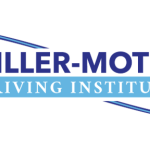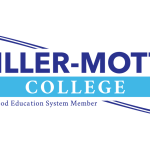If you’re interested in a career that’s hands-on, in demand, and foundational to nearly every building and industry, plumbing might be the right path for you. While many people pursue this trade through apprenticeships, a formal plumbing program at a trade school offers a structured, supportive alternative that can prepare you for the job market faster and more flexibly.
Apprenticeships are often lengthy and centered around working under a licensed plumber, building skills gradually over thousands of hours. In contrast, plumbing programs provide a focused mix of classroom theory and hands-on practice in a condensed format. These programs may be especially appealing for those who prefer a more guided and accelerated approach to developing trade skills.
Miller-Motte College’s Plumbing program is designed to help students prepare for entry-level roles as plumbing service technicians. It blends shop experience with vocational training aligned to real-world needs. If you’re considering enrolling, here are five things you can expect from this kind of trade-focused training.
1. A Foundation in Core Plumbing Skills
Plumbing is more than just fixing leaky faucets — it requires a comprehensive understanding of systems, materials, and regulations. In a trade school program, students begin by learning the basic principles that underpin modern plumbing. These include how water is distributed through homes and commercial buildings, how fixtures function, and how to read plumbing schematics.
You’ll work with various piping materials, such as copper, PVC, and PEX. Different systems require different tools and joining methods, and learning when and how to apply each one is a fundamental skill. Students also develop proficiency in using plumbing tools such as pipe wrenches, torches, cutters, and threaders.
As part of your training, you become familiar with valves, faucets, water heaters, and filtration systems. You gain practical experience with cutting, measuring, threading, and sealing piping. Understanding pressure regulation and flow rates can also be essential to your education.
All of this knowledge prepares you for real-world problem-solving, so that when you’re faced with a blocked drain or a broken valve, you know what steps to take and which materials to use.
2. Hands-On Learning With Industry Tools
Plumbing is a physical trade, and there’s no substitute for practicing with your hands. In a quality plumbing program, you won’t just read about how things work — you can experience it firsthand in a controlled environment.
At Miller-Motte College, students train using industry-standard tools and materials. Lab components and shop sessions give you the opportunity to apply what you’ve learned in the classroom to mock installations and repairs. You can practice safety procedures alongside technical tasks, ensuring that you build not only skill but also the professional discipline needed on job sites.
The program also integrates exposure to National Center for Construction Education and Research (NCCER) competencies. While this may not lead directly to NCCER certification, the training aligns with the standards and can make it easier to pursue credentialing later. This added preparation helps reinforce what you’ve learned and can reduce the time needed to meet employer expectations after graduation.
This hands-on aspect of training not only builds confidence but also helps students develop the muscle memory and critical thinking required to troubleshoot effectively in real-world scenarios.
3. Training Across Residential and Commercial Plumbing Systems
As a future plumbing technician, you’re likely to encounter both residential and commercial systems throughout your career. A trade school program prepares you to understand and work on both.
Residential plumbing systems are often simpler in scope. These include single-family homes or apartment units, where you’ll deal with one water heater, a few bathrooms, and a predictable flow of water usage. Training in residential systems focuses on common issues like pipe leaks, clogged drains, low water pressure, and appliance hookups.
Commercial systems, on the other hand, can be significantly more complex. Think office buildings, schools, or hospitals, where water must be delivered across multiple floors to dozens — or even hundreds — of fixtures. These systems often use larger-diameter piping, have higher water pressures, and involve more extensive drainage and ventilation systems.
Learning how to approach each system type, from initial layout to long-term maintenance, helps future technicians remain versatile and valuable to employers in multiple industries. It also builds the ability to communicate and coordinate with other trades — like HVAC or electrical — on multi-team construction projects.
4. Exposure to Plumbing Fixtures and Appliances
Beyond pipe and system infrastructure, a major part of a plumbing technician’s job involves installing, inspecting, and maintaining plumbing fixtures and appliances. This includes everyday components like toilets, sinks, showers, dishwashers, and water heaters.
In your training program, you learn how these appliances connect to the overall plumbing system, how to install them securely and to code, and how to diagnose common issues. Understanding how fixtures are built and function helps technicians assess whether something can be repaired or needs to be replaced.
Plumbing fixtures come in a variety of styles and materials, and students learn to work with everything from basic chrome fittings to high-end copper and stainless steel installations. Training may also cover energy-efficient and water-saving models, which are becoming increasingly important in both residential and commercial settings.
Troubleshooting problems like a leaking seal or a noisy water heater is also a key part of the curriculum. These service-oriented skills are highly valued by both employers and customers.
5. Career-Ready Preparation and Pathways
Once you’ve built your skills in class and lab environments, the next step is understanding how to apply them in the workforce. A plumbing program should prepare you not only for technical tasks but also for navigating job sites, communicating with team members, and preparing for professional development.
Miller-Motte’s program introduces students to the expectations of employers and gives them a chance to practice real-world job habits, like completing tasks efficiently, following safety protocols, and managing workflow. The program does not lead to licensure, but it provides the foundational training needed to pursue further education or apprenticeship hours, if that’s part of your goal.
Graduates may seek employment as plumbing service technicians or enter the workforce while continuing to pursue additional certifications or on-the-job training. Over time, technicians may move into specialized areas such as green plumbing, hydronics, or medical gas systems, depending on their interests and opportunities.
In some cases, experienced technicians take on leadership roles, overseeing other plumbing staff or even starting their own contracting businesses. While outcomes vary, the skills you gain in a plumbing program are transferable, practical, and aligned with career growth in the skilled trades.
Get Started With Miller-Motte College
Training to become a plumbing service technician can open doors to a career that’s stable, hands-on, and full of opportunity. A plumbing program at a trade school like Miller-Motte College offers structure, guidance, and real-world training that can help you transition into the field with confidence.
You’ll gain foundational skills, hands-on practice, exposure to residential and commercial systems, and an understanding of key appliances and tools — all while building habits that employers value.
While this program does not lead directly to licensure, it provides a solid starting point for those interested in pursuing additional training or entry-level roles.
Want to find out if this training path is right for you? Submit this form and take the first step toward a career in the skilled trades.
Disclaimers: Information within this blog is for general information purposes only. Miller-Motte College does not assume or guarantee certification/licensures, specific job/career positions, income earning potential, or salary expectations based on the programs offered at Miller-Motte College. Career and program information statements in this blog do not guarantee that programs or other information mentioned are offered at Miller-Motte College.
Information within this blog is for general information purposes only. Miller-Motte does not assume or guarantee certification/licensures, specific job/career positions, income earning potential or salary expectations based on the programs offered at Miller-Motte. Career and program information statements in this blog do not guarantee that programs or other information mentioned are offered at Miller-Motte.




